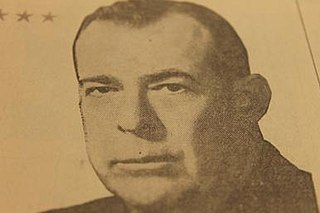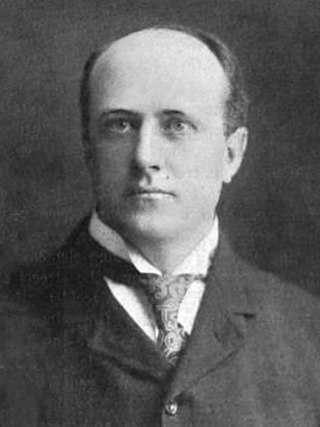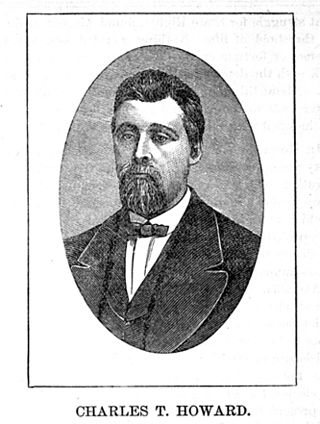The Slaughter-House Cases, 83 U.S. 36 (1873), was a landmark U.S. Supreme Court decision which ruled that the Privileges or Immunities Clause of the Fourteenth Amendment to the U.S. Constitution only protects the legal rights that are associated with federal U.S. citizenship, not those that pertain to state citizenship. Though the decision in the Slaughter-House Cases minimized the impact of the Privileges or Immunities Clause on state law, the Supreme Court would later incorporate the Bill of Rights to strike down state laws on the basis of other clauses. In 2010, the Court rejected arguments in McDonald v. Chicago to overrule the established precedent of Slaughterhouse and decided instead to incorporate the Second Amendment via the Due Process Clause of the Fourteenth Amendment.

Pinckney Benton Stewart Pinchback was an American publisher, politician, and Union Army officer. Pinchback was governor of Louisiana and the second lieutenant governor. A Republican, Pinchback served as acting governor of Louisiana for 35 days from December 9, 1872 to January 13, 1873, during which ten acts of Legislature became law. He was one of the most prominent office holders during and following the Reconstruction era during the Reconstruction Era.
In the United States, lotteries are run by 48 jurisdictions: 45 states plus the District of Columbia, Puerto Rico, and the U.S. Virgin Islands.

Edwin Washington Edwards was an American politician who served as the U.S. representative for Louisiana's 7th congressional district from 1965 to 1972 and as the 50th governor of Louisiana for four terms. A member of the Democratic Party, he served twice as many elected terms as any other Louisiana chief executive. He served a total of almost 16 years in gubernatorial office, which at 5,784 days is the sixth-longest such tenure in post-Constitutional U.S. history.

Charles Elson "Buddy" Roemer III was an American politician, investor, and banker who served as the 52nd governor of Louisiana from 1988 to 1992, and as a member of the United States House of Representatives from 1981 to 1988. In March 1991, while serving as governor, Roemer switched affiliation from the Democratic Party to the Republican Party.

Metairie Cemetery is a historic cemetery in New Orleans, Louisiana, founded in 1872. The name has caused some people to mistakenly presume it is located in Metairie, Louisiana, but it is located within the New Orleans city limits on Metairie Road.

Homer Adolph Plessy was an American shoemaker and activist, who was the plaintiff in the United States Supreme Court decision Plessy v. Ferguson. He staged an act of civil disobedience to challenge one of Louisiana's racial segregation laws and bring a test case to force the U.S. Supreme Court to rule on the constitutionality of segregation laws. The Court decided against Plessy. The resulting "separate but equal" legal doctrine determined that state-mandated segregation did not violate the Fourteenth Amendment to the United States Constitution as long as the facilities provided for both black and white people were putatively "equal". The legal precedent set by Plessy v. Ferguson lasted into the mid-20th century, until a series of landmark Supreme Court decisions concerning segregation, beginning with Brown v. Board of Education in 1954.

The Louisiana Constitution is legally named the Constitution of the State of Louisiana and commonly called the Louisiana Constitution of 1974, and the Constitution of 1974. The constitution is the cornerstone of the law of Louisiana ensuring the rights of individuals, describing the distribution and power of state officials and local government, establishes the state and city civil service systems, creates and defines the operation of a state lottery, and the manner of revising the constitution.

The Oregon Lottery is run by the government of the U.S. state of Oregon. It is a member of the Multi-State Lottery Association (MUSL).
The New Orleans crime family, also known as the Marcello crime family or the New Orleans Mafia, was an Italian-American Mafia crime family based in New Orleans, Louisiana. The family had a history of criminal activity dating back to the late nineteenth century. These activities included racketeering, extortion, gambling, prostitution, narcotics distribution, money laundering, loan sharking, fencing of stolen goods, and murder. Operating along the Gulf Coast, with its main criminal activity centered in the New Orleans area, the organization reached its height of influence under bosses Silvestro Carollo and Carlos Marcello.

The Hoosier Lottery is the official state lottery of Indiana, and is the only US lottery that uses the state's nickname as its official name. It is a member of the Multi-State Lottery Association (MUSL). The Hoosier Lottery sells scratch-off tickets; its draw games include Mega Millions, Hoosier Lotto, Powerball, Cash 5, and Poker Lotto.
The Louisiana Lottery Corporation (LLC) is a government-run lottery that is used to generate revenue without increasing taxes. The proceeds of the Lottery go to the Minimum Foundation Program that funds public education in Louisiana. The daily activities involved with running the cooperation are handled by the president of the Louisiana Lottery Cooperation. The president is under the supervision of the Lottery's nine-member governing board of directors.

Clarence C. "Taddy" Aycock, an American conservative Democrat from Franklin in St. Mary Parish, was the only three-term lieutenant governor in 20th century Louisiana history. He served from 1960 to 1972. Aycock failed in his only bid for governor in the 1971 Democratic primary. Few lieutenant governors in Louisiana have been elected directly to the governorship; former Governor Kathleen Babineaux Blanco of Lafayette, is a prominent exception.

Lady from Louisiana is a 1941 American western drama film directed by Bernard Vorhaus and starring John Wayne, Ona Munson and Ray Middleton. It was produced and distributed by Republic Pictures. Vera Caspary was amongst the film's screenwriters.
The Separate Car Act was a law passed by the Louisiana State Legislature in 1890 which required "equal, but separate" train car accommodations for Black and White passengers within the state. An unsuccessful challenge to this law culminated in the United States Supreme Court decision of Plessy v. Ferguson in 1896, which upheld the constitutionality of state laws requiring racial segregation.

Alfred Hennen Morris was an American businessman politician, and racehorse owner/breeder.
Edgar Howard Farrar was an American corporate lawyer and political activist.

The 29th New York State Legislature, consisting of the New York State Senate and the New York State Assembly, met from January 28 to April 7, 1806, during the second year of Morgan Lewis's governorship, in Albany.

Charles Turner Howard (1832–1885) was an American businessman who organized the Louisiana State Lottery Company in 1869. This corporation bribed Louisiana lawmakers to enable it to stay in business, and the firm amassed a considerable fortune over the years while Howard led a controversial life. He died at age 53 after a fall from his carriage in Dobbs Ferry, New York, but his family continued his efforts at philanthropy and charitable giving.

In the state of Iowa, gambling has been legalized and expanding since the ratification of a constitutional amendment in 1972. Before then, the constitution prohibited the gambling within the state. As of 2018, gambling is Iowa's largest tourist attraction, making $1.476 billion per year.
















